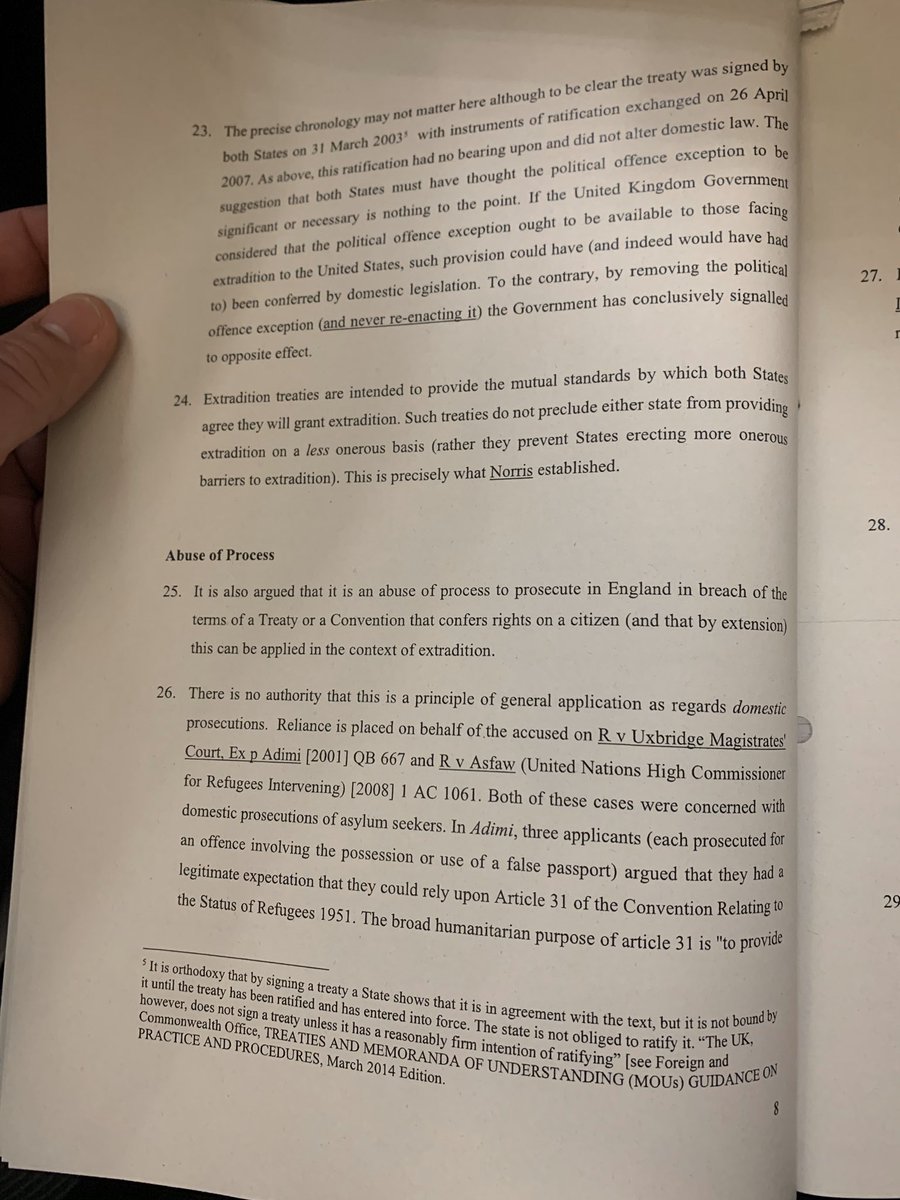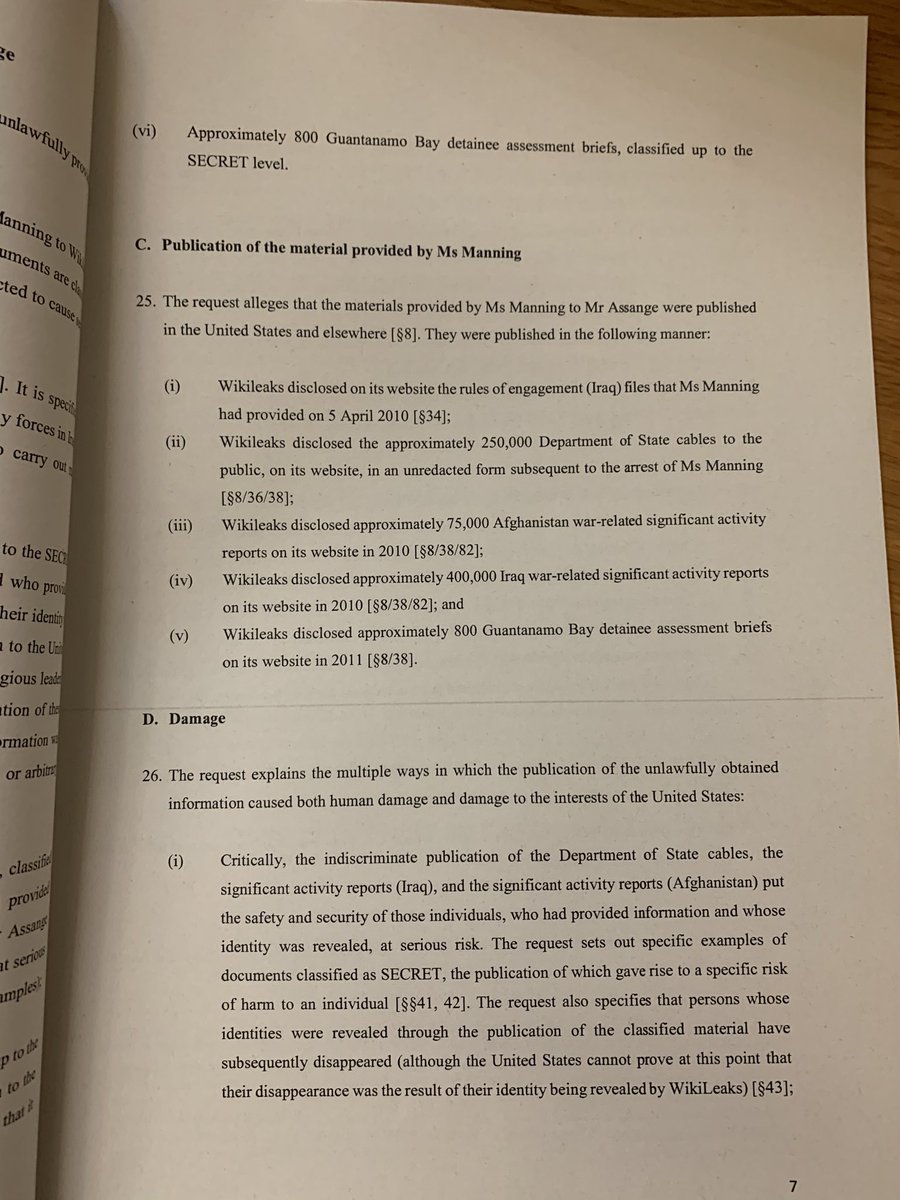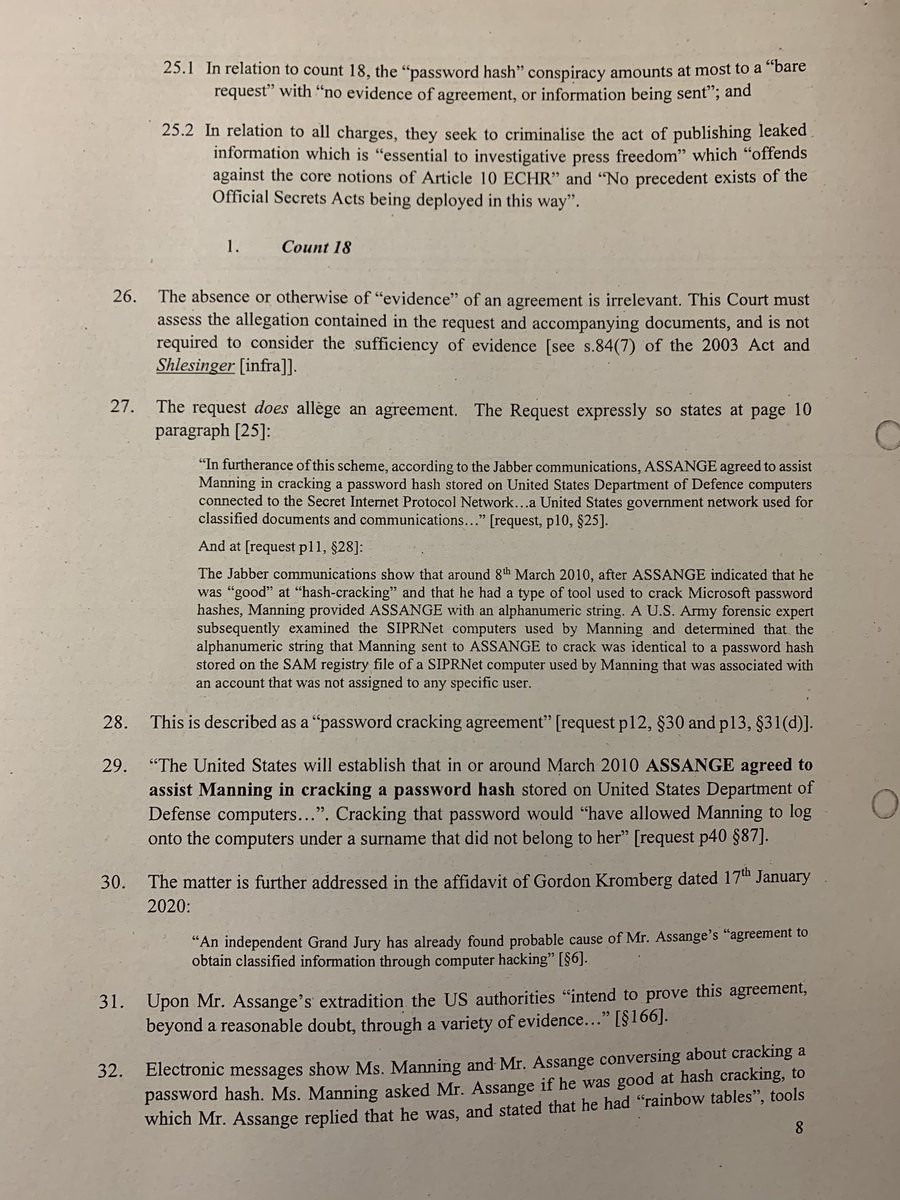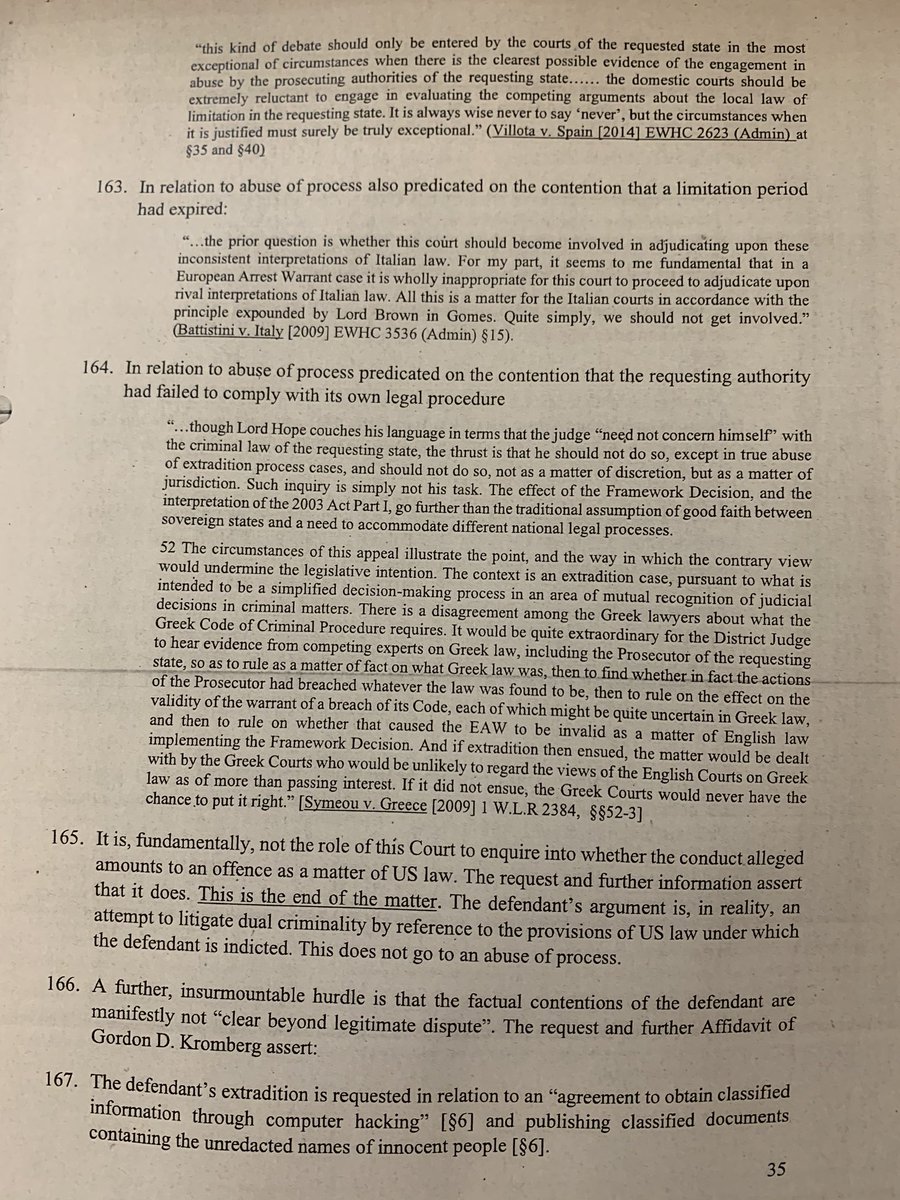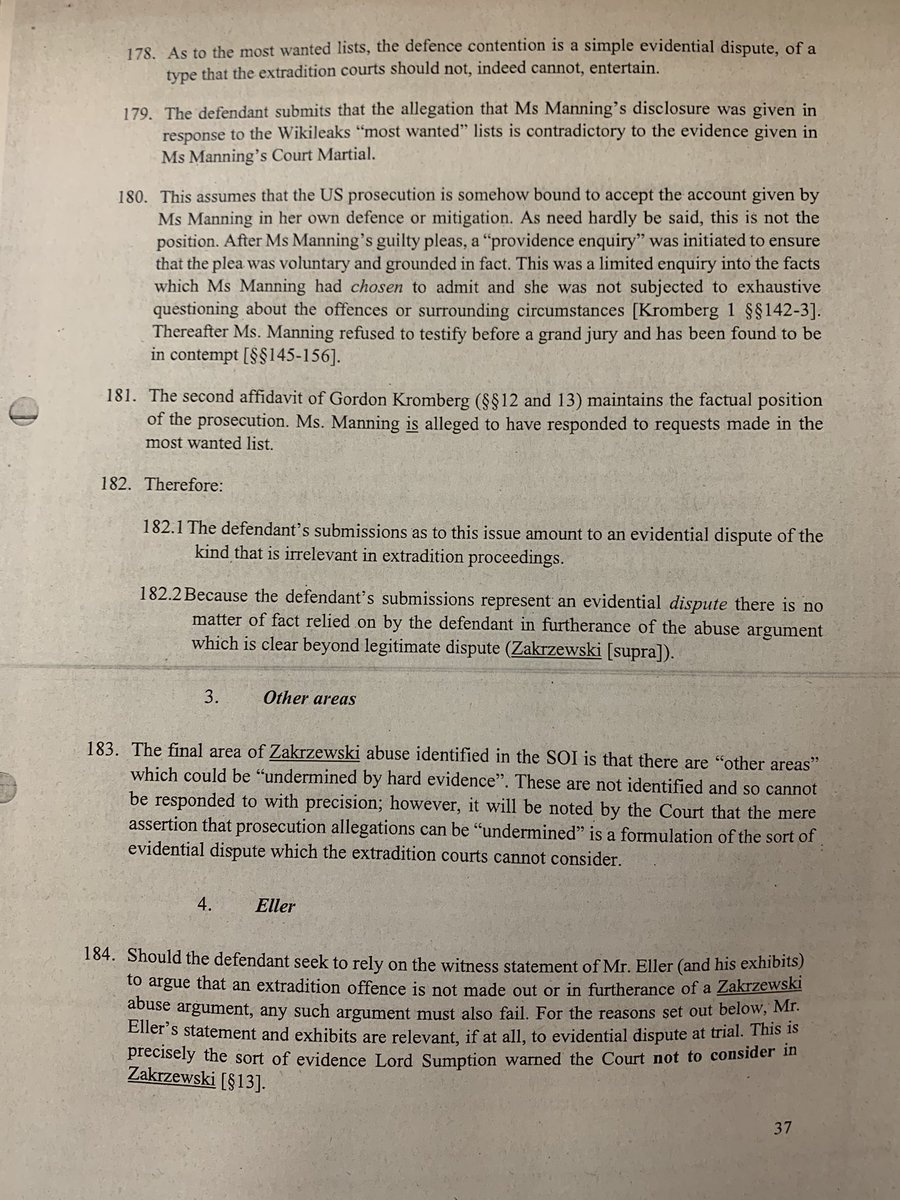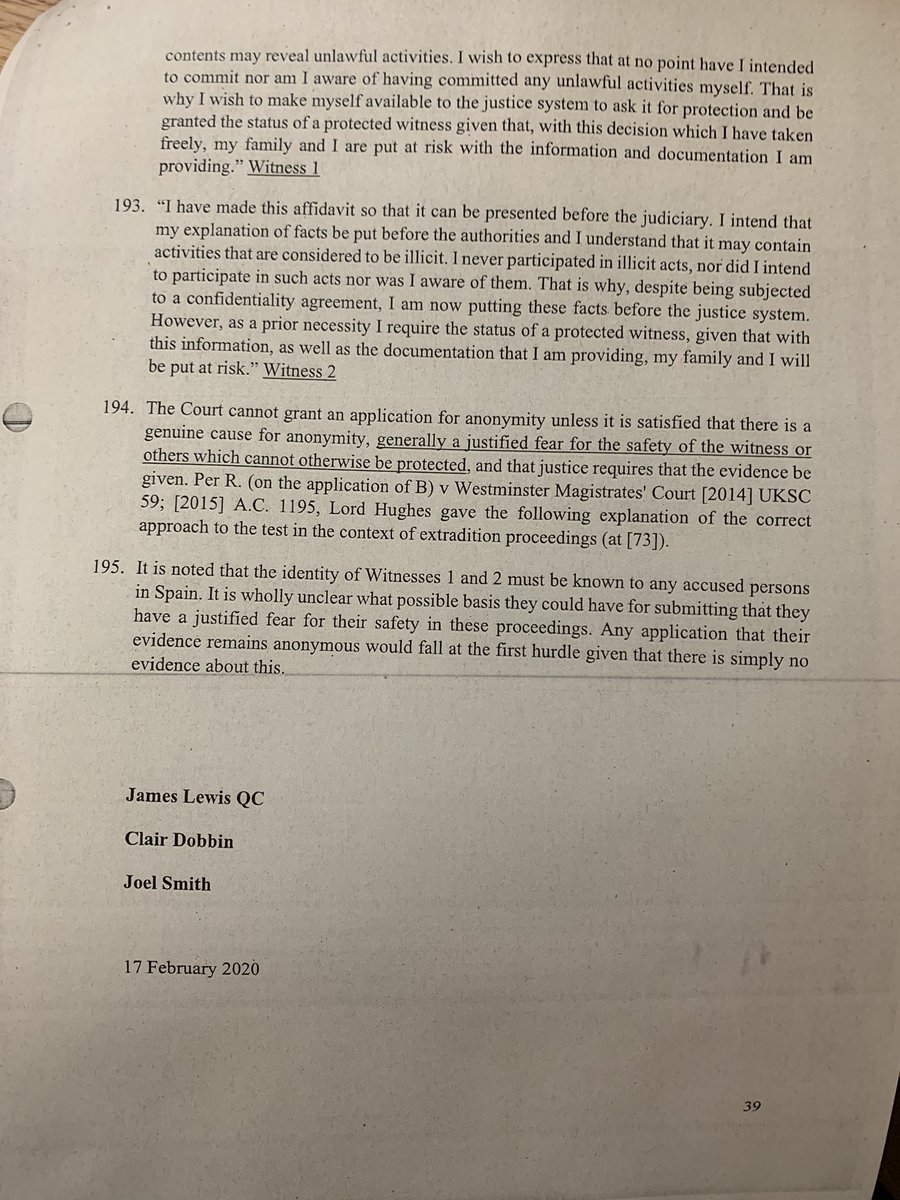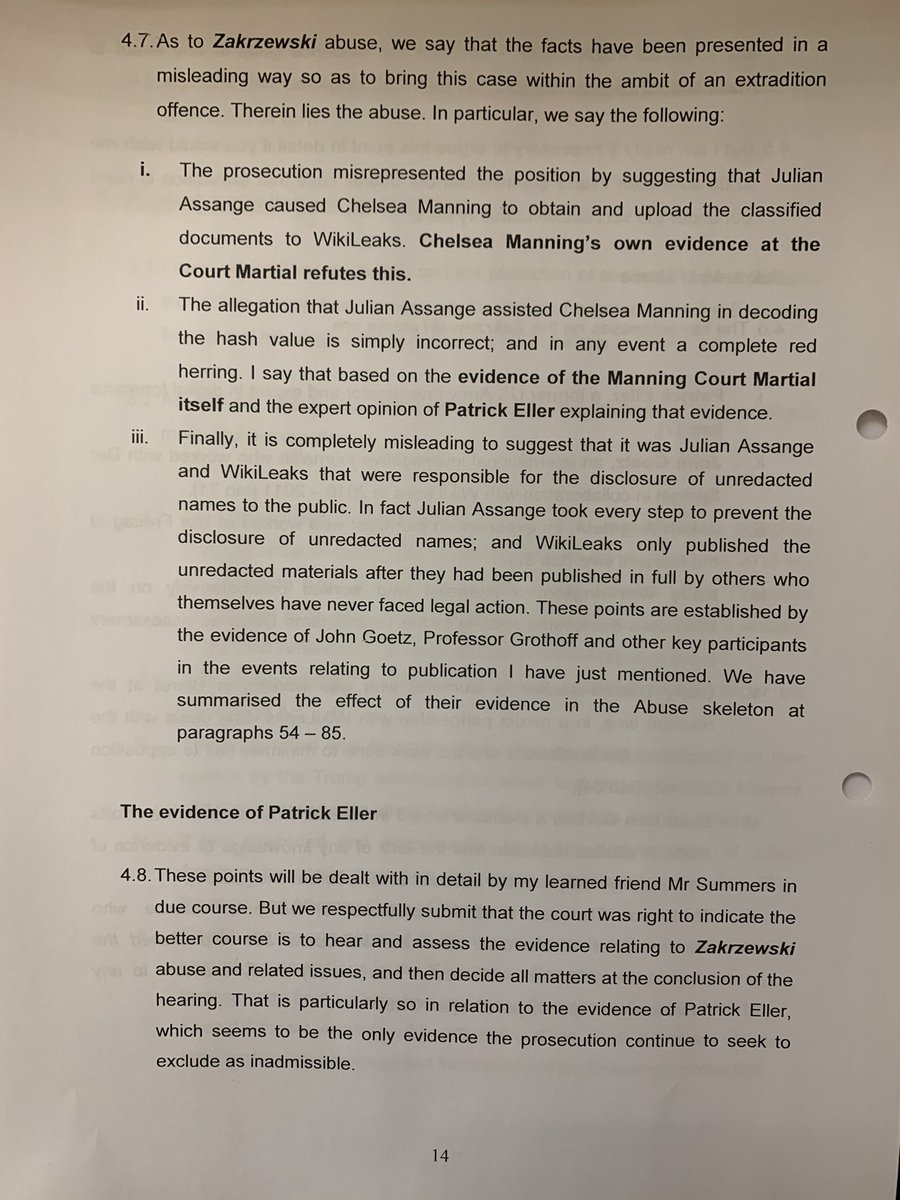He then says that regardless of whether individuals suffered harm, the US government went to extensive lengths to identify “at-risk” sources due to the WikiLeaks publication of unredacted documents.
Everyone has large binders with multiple documents, and now the prosecutor and the magistrate are attempting to ensure they are, literally, on the same page.
Magistrate asks defense: Is there no contention the charges constitute an extraditable offense?
Defense: “We DO contend that.”
The defense contends that this is not an extraditable offense based on “Article 10” grounds (of the UK’s Official Secrets Act).
At question is whether Assange’s alleged actions communicating with Chelsea Manning would form the basis for a criminal charge under UK law.
The magistrate interrupts, advising him to speak through his attorney.
Assange’s attorney repeats that the protesters outside are not helping Assange; they’re making it hard for everyone to hear.
Magistrate now tells both the defense and the prosecution she would like them to explain what, exactly, they would like her to rule upon this week, then calls for a short recess.
It’s very unlikely, Fitzgerald replies.









